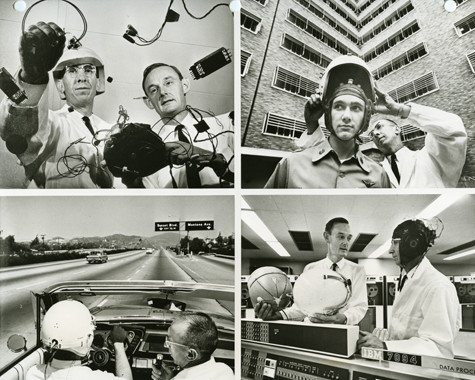Let’s say that far in the future–very, very far–scientists have become incredibly brilliant using methods of Intelligence Augmentation we can now barely fathom, enabling them to reawaken or replicate brains cryogenically frozen, organs housed in buildings that somehow have escaped natural disasters, arson, violent revolution, building developers and apathy for eons. Why would tomorrow’s scientists want to spend their time this way? I mean, they might revitalize a couple dozen for the sake of research, but what impetus would they have to “reincarnate” brains much punier than theirs? The only chance for people who decide to freeze themselves after death is that an answer arrives rapidly, in just a few generations, and there’s almost no chance of that happening.
Being able to upload brain content into a computer file is a slightly better bet if that method should be perfected, but who’s to say citizens of the deep future will want such “foreigners” in their midst? Maybe they’ll just give this simple software to children so they can mix and match and create fun, new friends to busy them.
In a New York Times piece, theoretical neuroscientist Kenneth D. Miller doesn’t discount that brains might someday be reconstructed from their detailed information, but he doesn’t think it’s happening anytime soon given the complexity of the mission. The opening:
In recent times it has become appealing to believe that your dead brain might be preserved sufficiently by freezing so that some future civilization could bring your mind back to life. Assuming that no future scientists will reverse death, the hope is that they could analyze your brain’s structure and use this to recreate a functioning mind, whether in engineered living tissue or in a computer with a robotic body. By functioning, I mean thinking, feeling, talking, seeing, hearing, learning, remembering, acting. Your mind would wake up, much as it wakes up after a night’s sleep, with your own memories, feelings and patterns of thought, and continue on into the world.
I am a theoretical neuroscientist. I study models of brain circuits, precisely the sort of models that would be needed to try to reconstruct or emulate a functioning brain from a detailed knowledge of its structure. I don’t in principle see any reason that what I’ve described could not someday, in the very far future, be achieved (though it’s an active field of philosophical debate). But to accomplish this, these future scientists would need to know details of staggering complexity about the brain’s structure, details quite likely far beyond what any method today could preserve in a dead brain.
How much would we need to know to reconstruct a functioning brain?•

